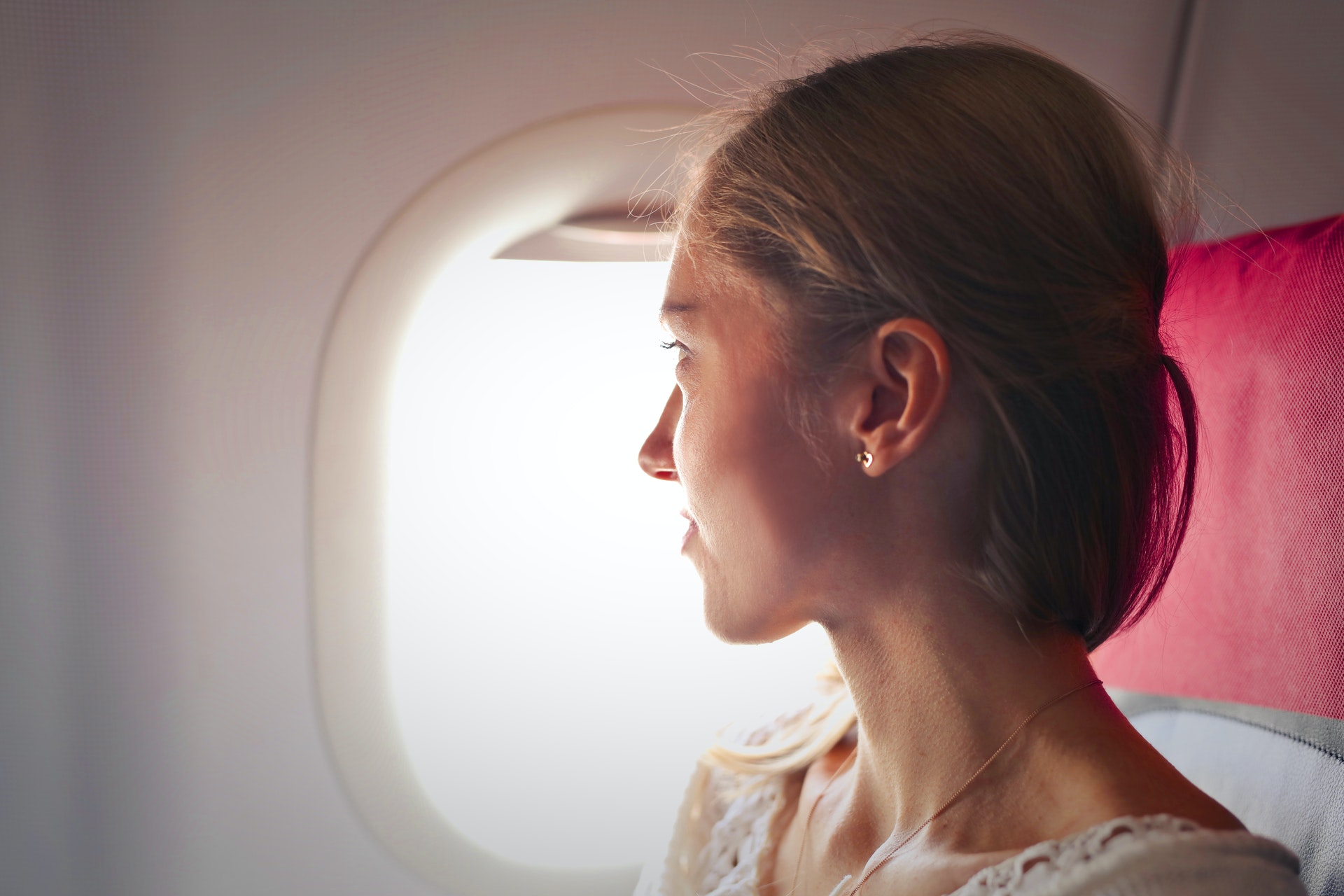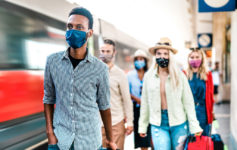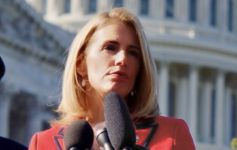
The idea that middle seats can be blocked on a long-term basis without dramatically increasing fares is far-fetched. But passengers love open middle seats (can you blame them?) and cheap fares. That’s why you can expect airlines to unleash a public information blitz in the months ahead about how safe air travel is, focusing on the inherent but invisible safety of the air travel experience.
Airlines Mull Replacing Visible Safety Assurances With Invisible Ones
Airline executives met virtually at the Skift Global Forum 2020. A roundtable which featured Delta CEO Ed Bastian, United CEO Scott Kirby, American Airlines CIO Maya Leibman, and JetBlue COO Joana Geraghty broached the issue of safety.
JetBlue’s Geraghty voiced her opinion of the need to move away from “perception based” policies, most notably blocking middle seats. Instead, she wants airlines to collectively embark upon a public information campaign that would establish flying to be as safe as a trip to the grocery store.
United CEO Kirby quickly agreed, noting, “The facts are stunning how safe an airplane is.”
Certainly such a campaign would benefit airlines two-fold. One, it would get people back in the air. Two, it would allow airlines to sell out flight without fear of alienating customers (JetBlue is blocking middle seats through October 15 while United Airlines is no longer blocking middle seats).
So is airline travel really that safe? A recent Harvard study pegs the chances of contracting COVID-19 on an airplane at less than 1% if two conditions are present onboard:
- All passengers wear masks
- HEPA air filtration systems
Is that a gamble you’d be willing to take? Would a massive PR blitz touting that airplanes are safer than grocery stores sway you at all?
And of course details matter. Is the grocery store crowded? Or the airplane? What happens if one person is sick…how do probabilities change? And once you get into that high-level amount of detail, won’t you lose most people?
CONCLUSION
It’s interesting to me that airlines are talking so frankly about public information being the key to a travel rebound (versus vaccination or testing). If the current U.S. presidential election and America’s reaction to the pandemic has shown us anything, it is that people live in bubbles and each fiercely defend their version of facts and events, creating counter-truths that most are too weary or disinterested in trying to parse to find the truth itself.
We live in a jaded period of history in which trust in institutions is lacking. Thus, I’m not sure that trying to reason with people based upon statistics that airplanes are safe is going to be an effective strategy for restoring air travel demand. That said, flying is a risk I am happy to take for myself and those that I love.




I’m not ready to have heavy-breathing tub of sh** passengers sitting in the middle seat and spilling into my seat. Just the thought of having their damp, sweaty arms rubbing against me makes me retch.
Matthew – one thing interesting is an estimation that Citigroup analyst Stephen Trent made regarding Delta going breakeven on a cash operating basis by year end. It also appears as though AA/UA are discounting to fill seats while Delta is holding the line to deliver a premium ‘no one in the middle’ option. If AA/UA average yields fall more than 33%, then they have to fill all those extra middle seats, which I would imagine they are not. All Delta has to do is maintain its fare premium something it might be easier for it to do with its premium product. Theatre or not, something is working better if their yields are higher than AA/UA. What I hope they do next, after their January timeline to go back to all seats in the row, is to give people the option of buying the middle seat at a discount to keep it open. And if there is a person on the other side of them, to split the cost of that seat (though multiple legs will make it tricky). Even a little bit of change, say $100 extra might be worth it – if it helps keep up yields – but Delta needs to plug that in and figure it out. As the flight gets more full, that cost should go up as Delta’s opportunity cost increases.
Interesting article – thank you for sharing. I’m glad we are moving away from the “theater” of safety and into practical steps that actually work. I would hope to see the same thing in the security “theater” coming soon. Looking at you, TSA. That doesn’t necessarily mean racial profiling (although not off the table – see Israel and their safety record), but we can all take steps to make things better.
Crud, kinda goes against this CDC article or other superspreader events documented with SARS-COV1:
https://wwwnc.cdc.gov/eid/article/26/11/20-3299_article
It ain’t safe and won’t be safe till prevalence of disease is low. And let’s SNOT forget all the fomites you encounter in the boarding area and TSA checkin.
It’s about the air we share. No HEPA filter overcomes air slowly wafting over three hundred passengers’ mouths before getting to the filter. Only HEPA filters that work are on PAPR hoods.
Invisible “safety measures” mean nonexistent safety measures. Remember when these guys were taking about immunity passports and other nonsense? This seems to be similarly weird and bizarre.
You guys really think that sneeze a seat behind you gets HEPA’ed out in the 2 seconds it takes to reach u? And keep in mind if there are ten people within 6 feet of u, the chances of one not wearing a mask is 10 times higher.
Flying won’t be safe unless you are going from a low prevalence area, and good luck with that for the next year.
If flying is sooooo safe, why is it that business travel is essentially “dead” as you stated today in another post.
Businesses are not putting their employees on planes, and it seems like that’s not about to change anytime soon.
Are all those businesses wrong? Or do they know something that, say, travel bloggers are willing to ignore?
I think you’re mistaken when you speak about a “version of facts”. A person can try to deny facts (Holocaust denial) or try the “alternate facts” (Bowling Green massacre) but a fact is by definition factual. You’re sure right about different versions of events though.
Agreed. My language should have been tighter.
My bad, I misunderstood your meaning.
@ Richard Bupkiss
I’m sure they just don’t want to get sued if an employee was forced into danger etc etc.